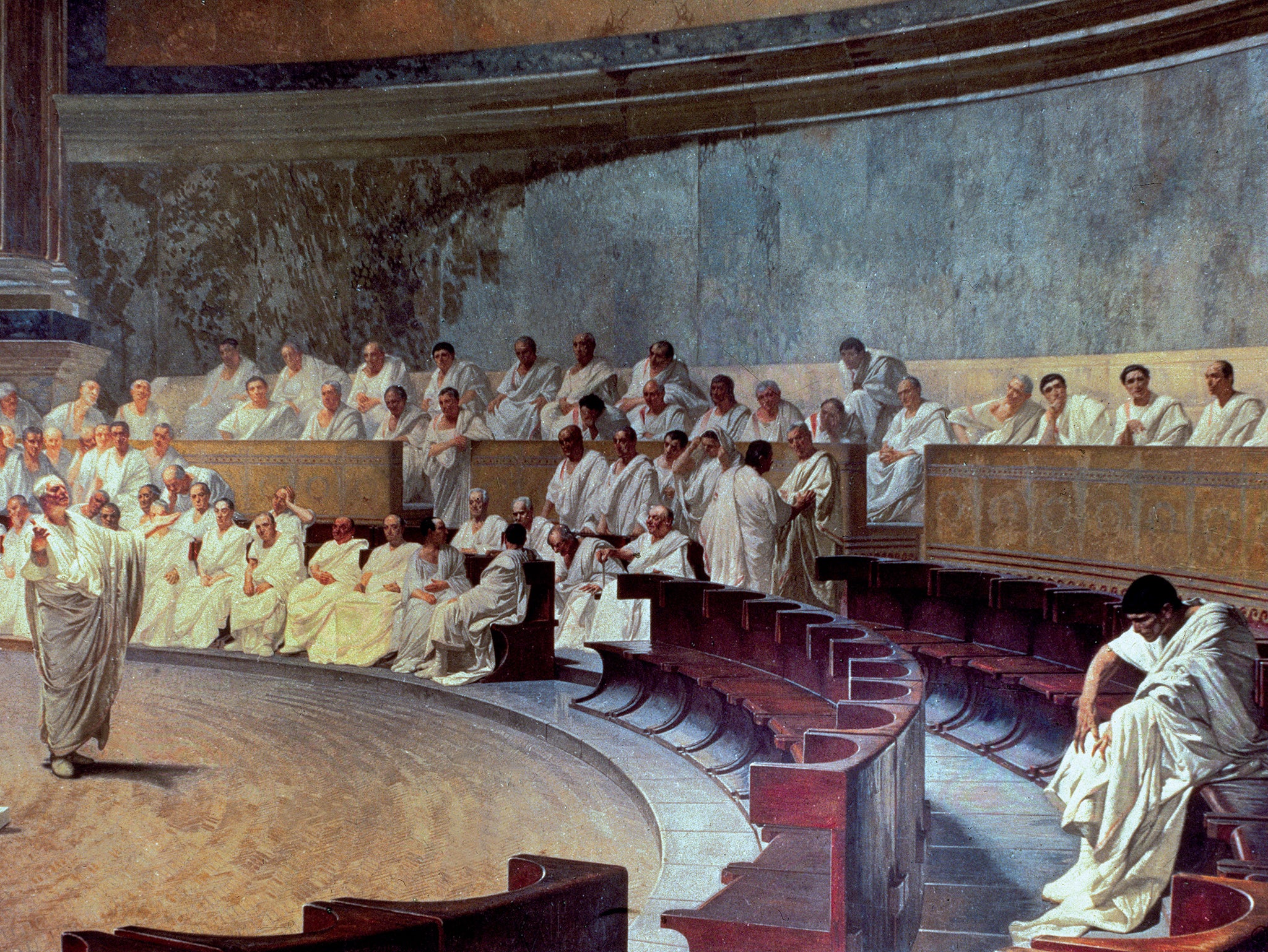Dictator, By Robert Harris - book review: Decline and fall in Rome
Robert Harris’s trilogy on Cicero ends with a whimper not a bang

Your support helps us to tell the story
From reproductive rights to climate change to Big Tech, The Independent is on the ground when the story is developing. Whether it's investigating the financials of Elon Musk's pro-Trump PAC or producing our latest documentary, 'The A Word', which shines a light on the American women fighting for reproductive rights, we know how important it is to parse out the facts from the messaging.
At such a critical moment in US history, we need reporters on the ground. Your donation allows us to keep sending journalists to speak to both sides of the story.
The Independent is trusted by Americans across the entire political spectrum. And unlike many other quality news outlets, we choose not to lock Americans out of our reporting and analysis with paywalls. We believe quality journalism should be available to everyone, paid for by those who can afford it.
Your support makes all the difference.It’s been a long wait for fans of Robert Harris’s Cicero trilogy. Imperium was published in 2006. Its sequel, Lustrum, three years later. Each rave review of An Officer and a Spy in 2013 was like a knife in the ribs on the Ides of March: would he never come home to Cicero?
Harris’ version of Cicero is a tremendous creation, not least because he sticks so closely to the man’s own words (around 900 of Cicero’s letters – many to his friend Atticus, his brother Quintus or his wife Terentia – have survived).
Pompous though he was, Cicero creeps under the skin of the modern reader, whether writing about the death of his beloved daughter, Tullia, or coining a phrase which captures something about moving house that is unchanged in 2,000 years: “I have put out my books and now my house has a soul”.
Tiro, Cicero’s slave and eventually freedman, remains a thoughtful and cautious narrator, though Harris occasionally allows 21st century values to slide into Tiro’s voice: “How could I, a slave, understand his sense of loss, having never possessed anything worth losing in the first place?” That might be how we view slavery, but Tiro would have known slaves who managed to save enough money to buy their freedom, even if that property was technically the possession of their masters. Tiro himself has already bought the freedom of another slave, Agathe. So he of all people knows that even a slave’s possessions are valuable.
For the most part, Cicero’s unbearable need to grandstand – even in ordinary conversation – is nicely punctured by Tiro’s affection for him. And it also allows Harris to sneak in exposition without clunking: “Consider it now,” demands Cicero of Tiro. “Tell me: why are we fleeing Rome?” Both characters already know the answer, but Cicero’s love of rhetorical flourish makes the conversation seem perfectly plausible.
But Dictator is perhaps the least successful book of the trilogy, for reasons which are largely outside Harris’s control. Having begun a series of books about the rise and fall of a great Roman statesman, he can’t very well stop before the end of Cicero’s life. But the later years of Rome’s Republic are impossibly complex, with an enormous cast of characters. Even minor figures in the story have to be introduced with a quick précis of where they stand in regards to three or more major players.
Characters who will go on to shape Rome’s history wear their destinies heavily; Cicero foresees Caesar’s future thus: “He could grow strong – very strong. If Pompey is not careful, he will wake up to find a monster on his back.” And when Brutus first appears, he is merely nephew to the great senator, Cato. But he is, nonetheless, “a young man of whom great things were expected”. Well, quite.
History creates a structural problem for the last third of the book: the sad truth of Cicero’s later years is that he was reduced to a bit-part player in the collapse of the Republic. As the struggles for power left the law-courts and the senate-house and took place on the battlefield, the plot can only drip in through letters from where the real action is taking place. Harris always tells a great story, but this one lacks the thrilling climax of the earlier two volumes.
Join our commenting forum
Join thought-provoking conversations, follow other Independent readers and see their replies
Comments